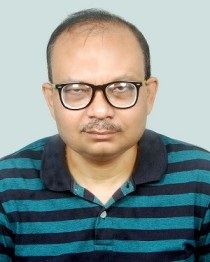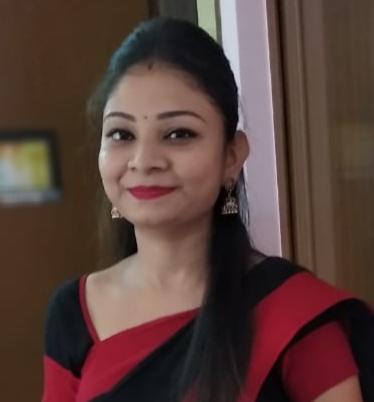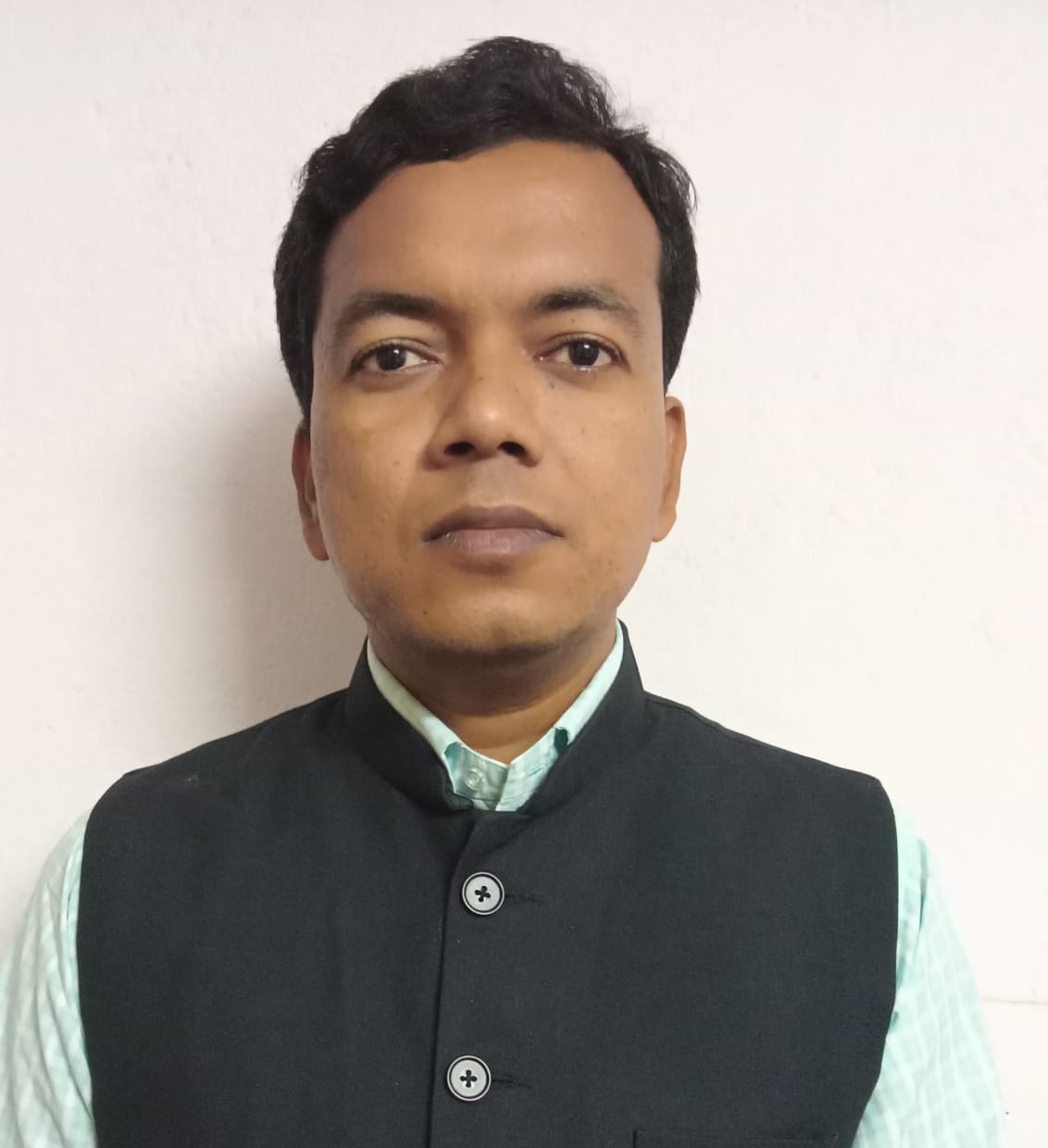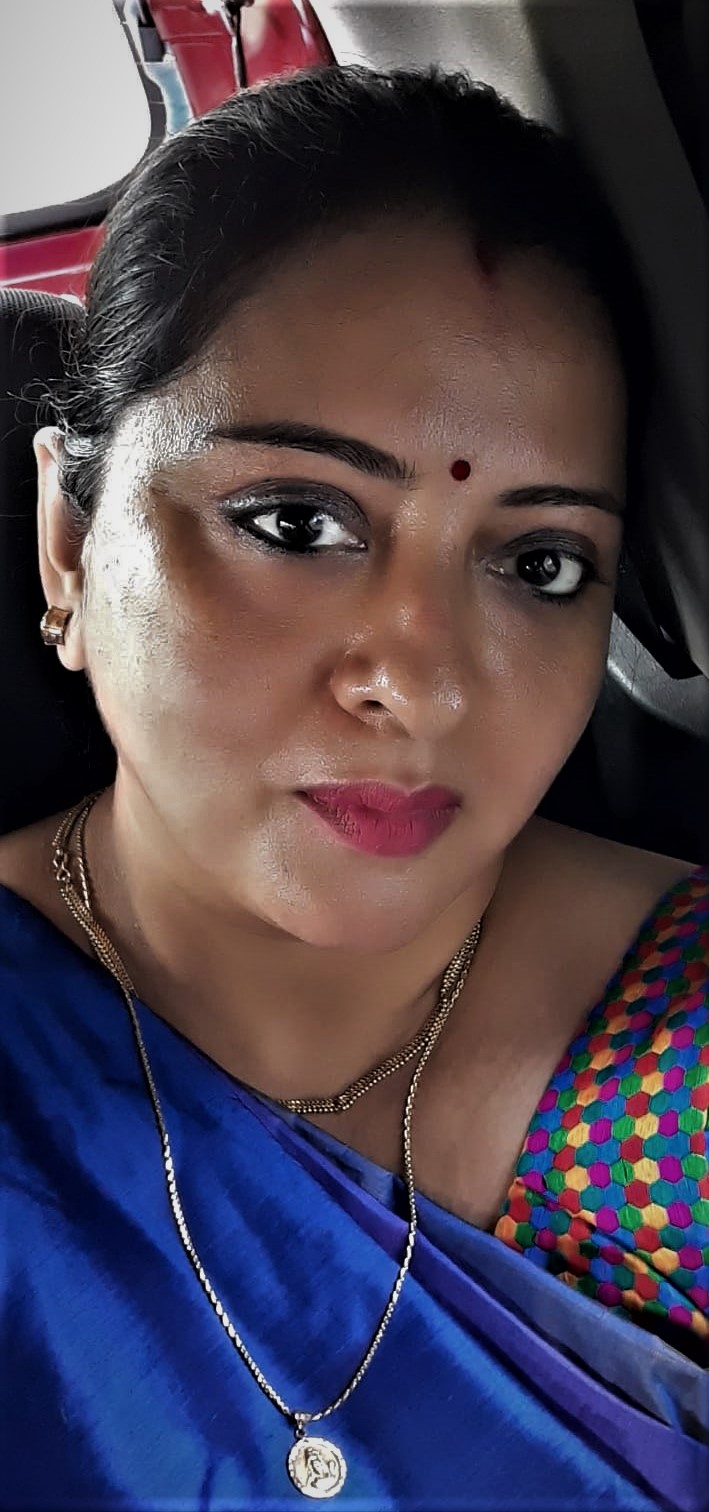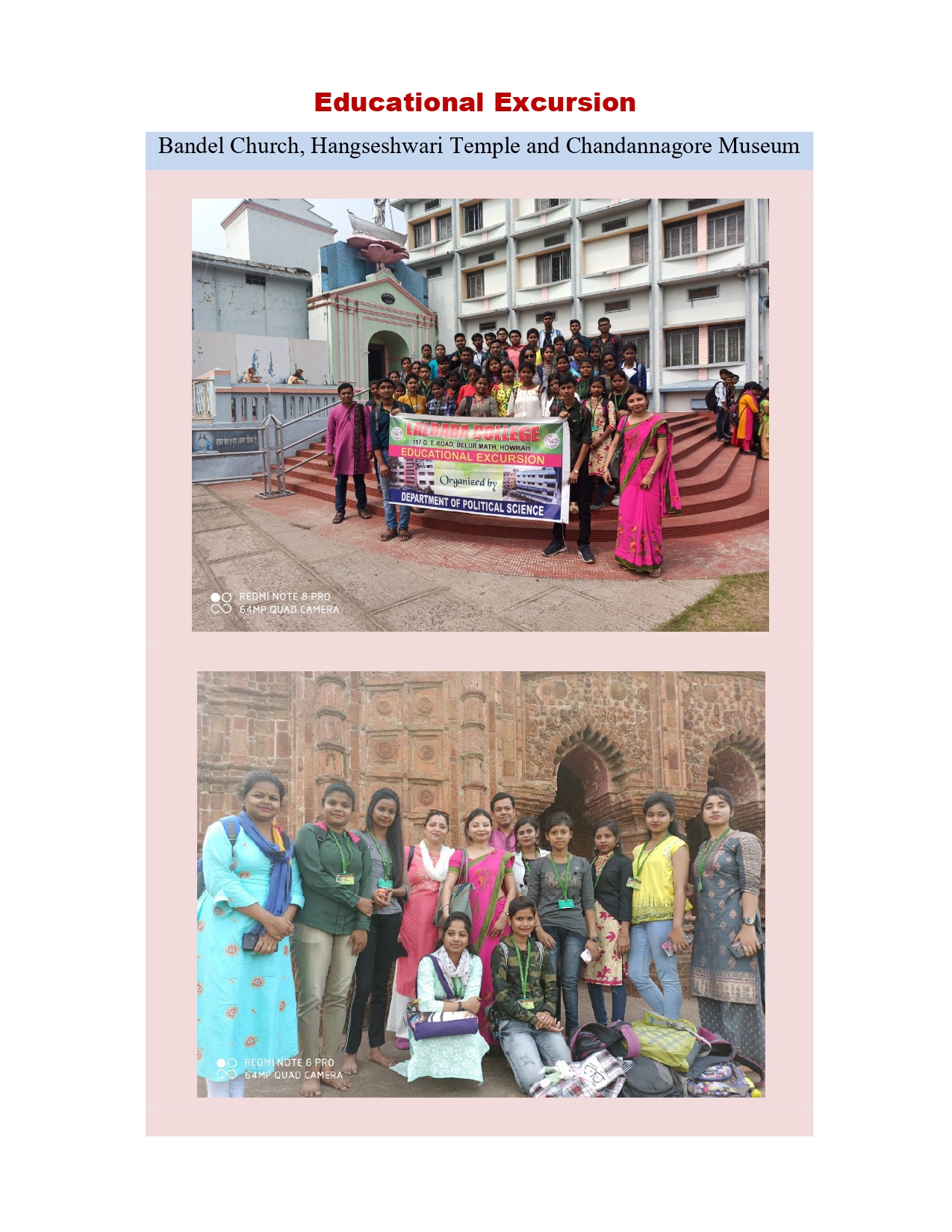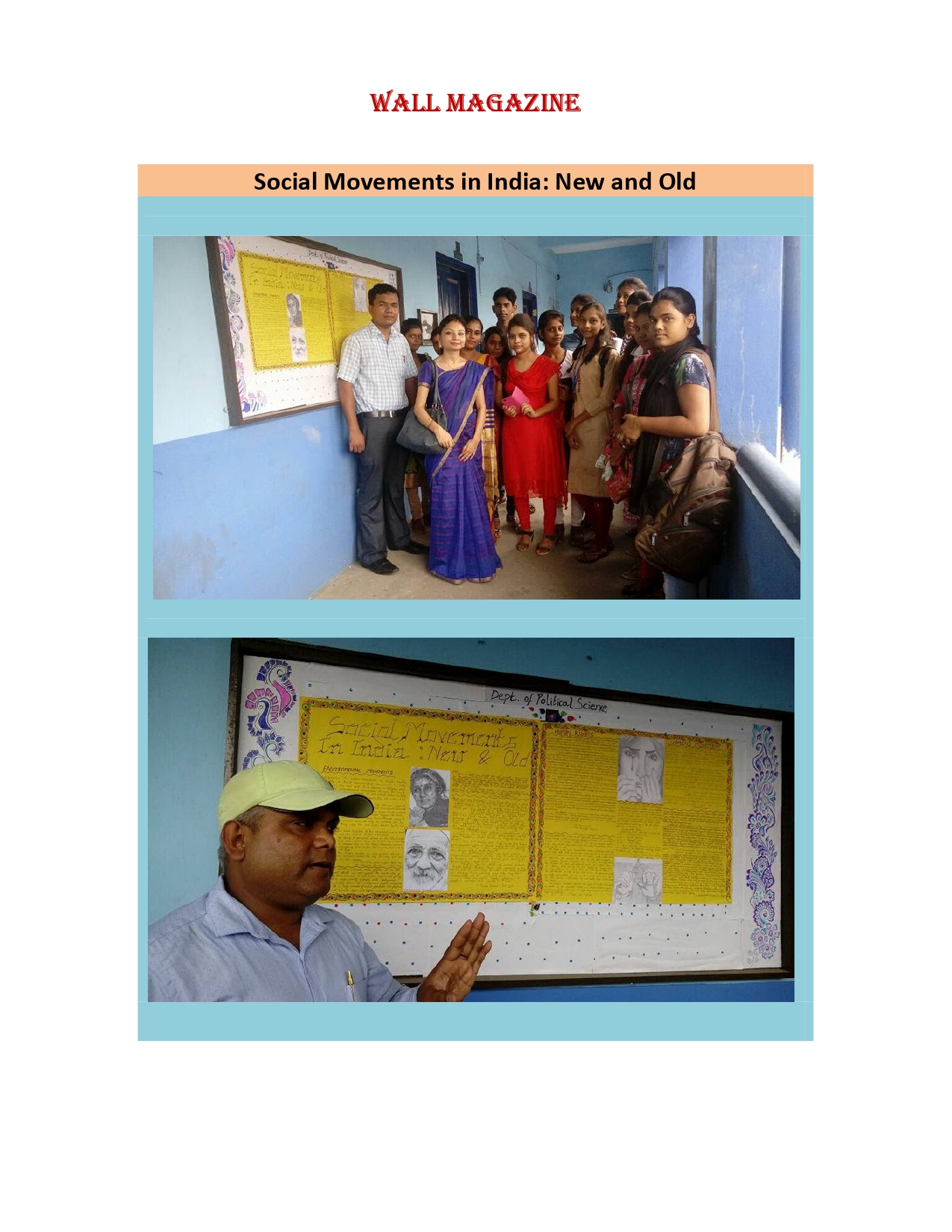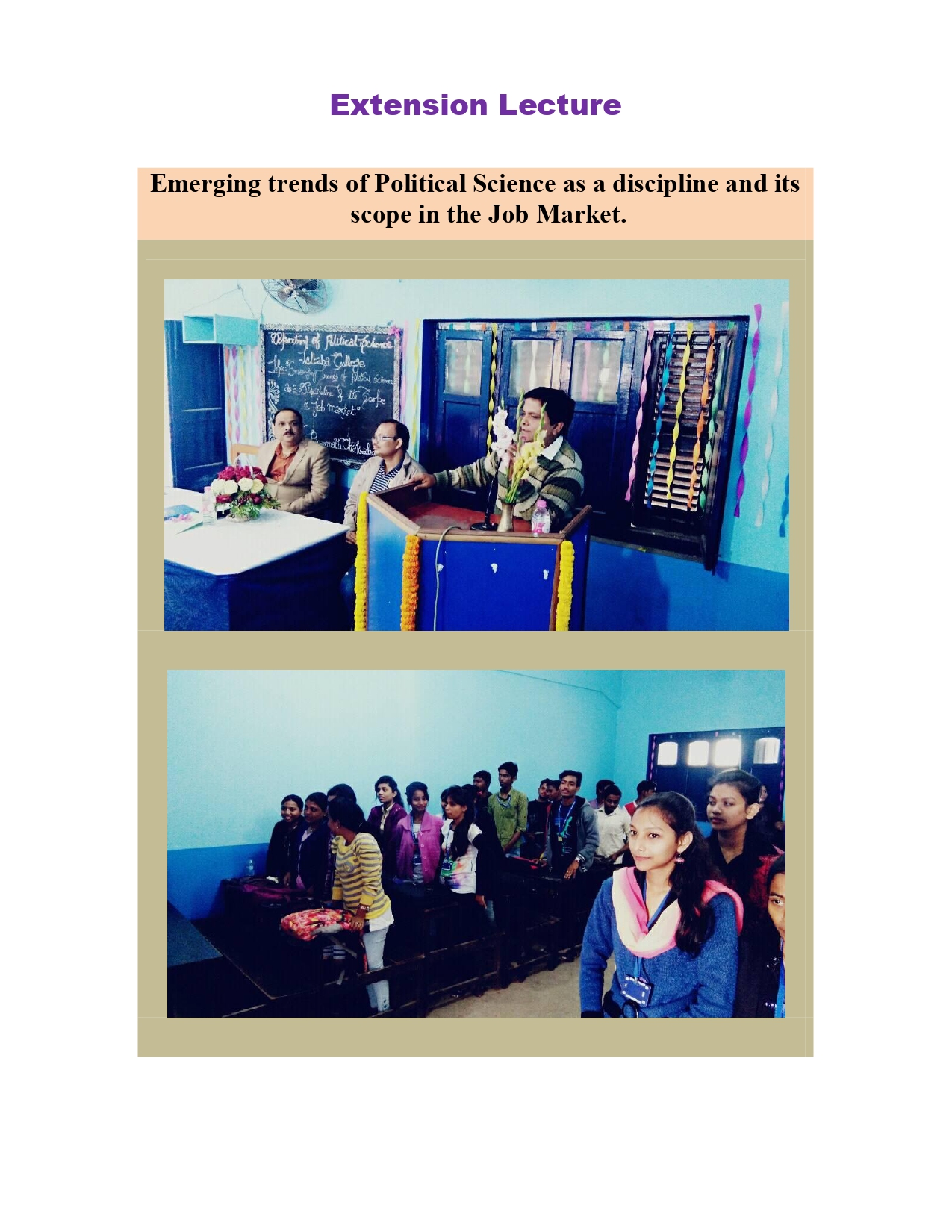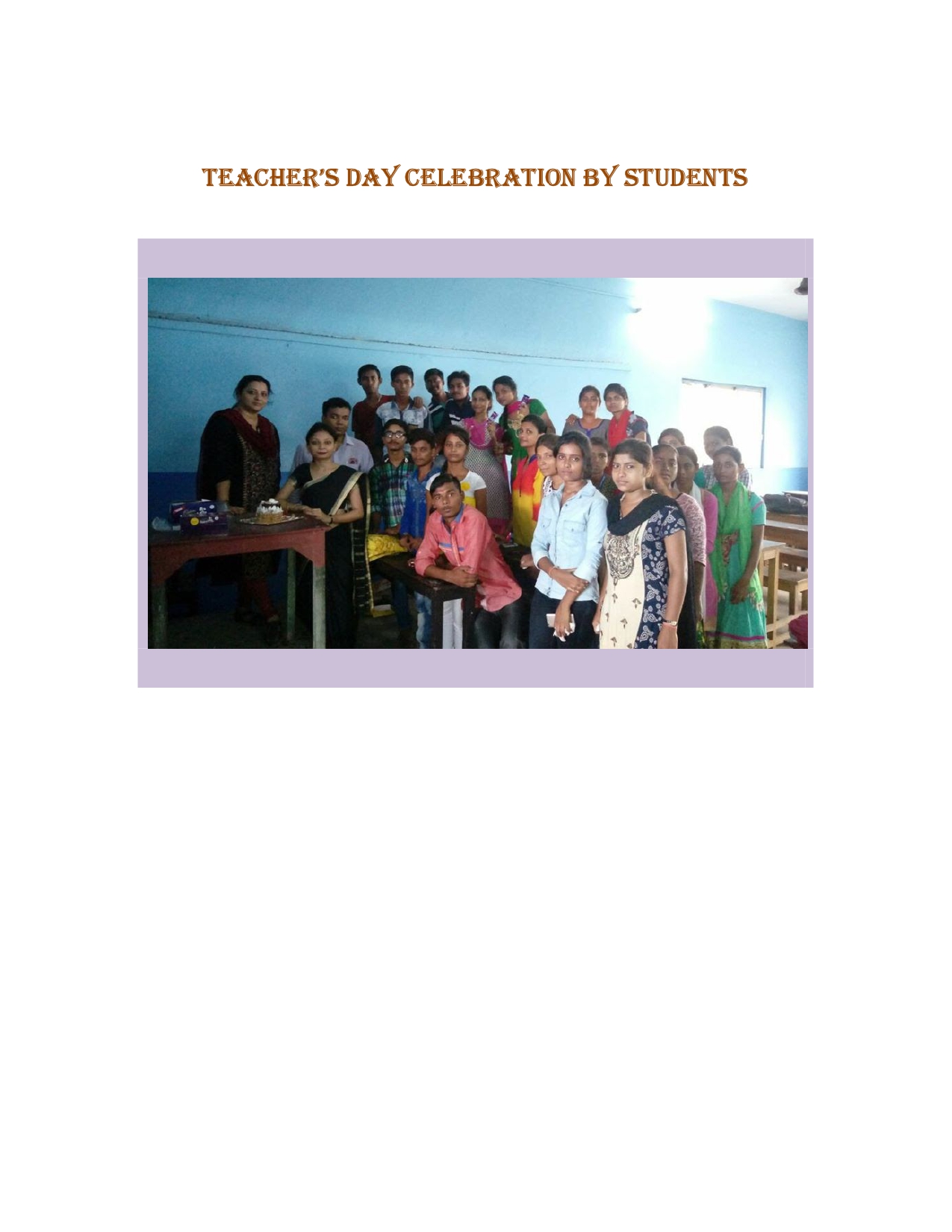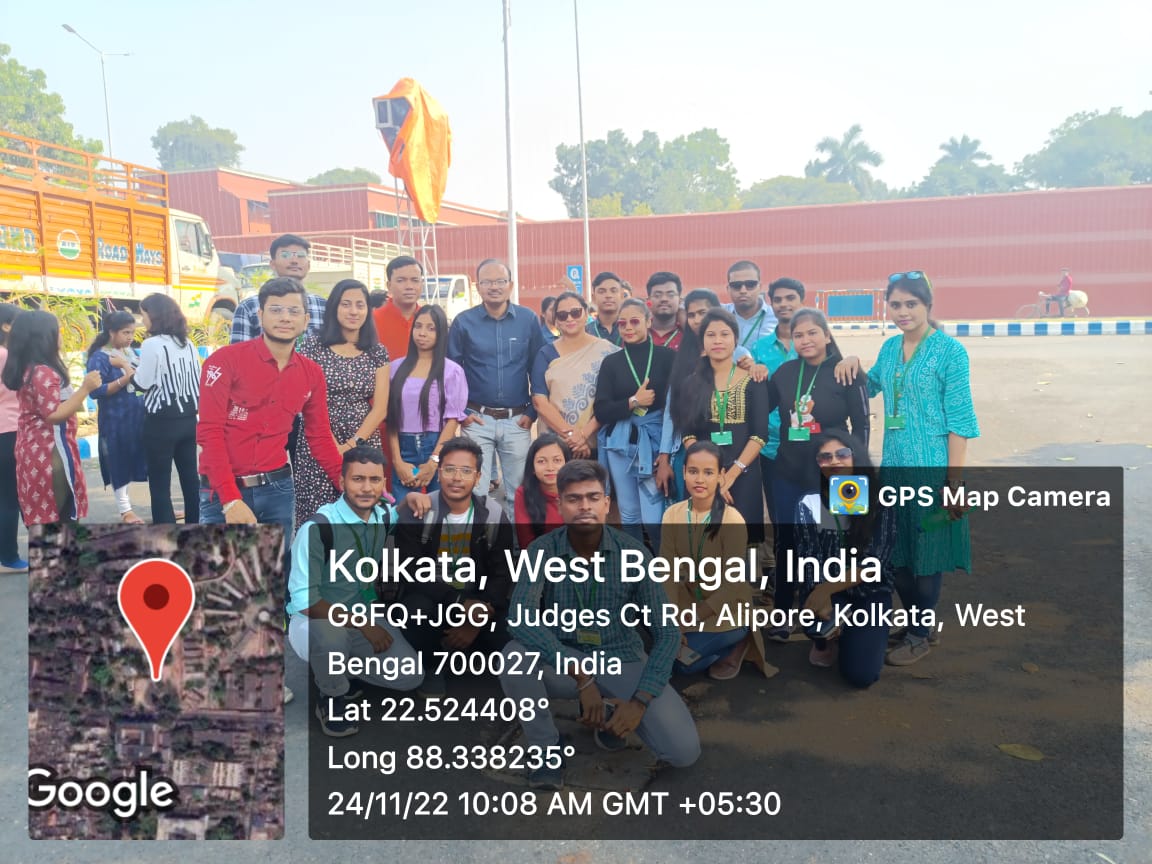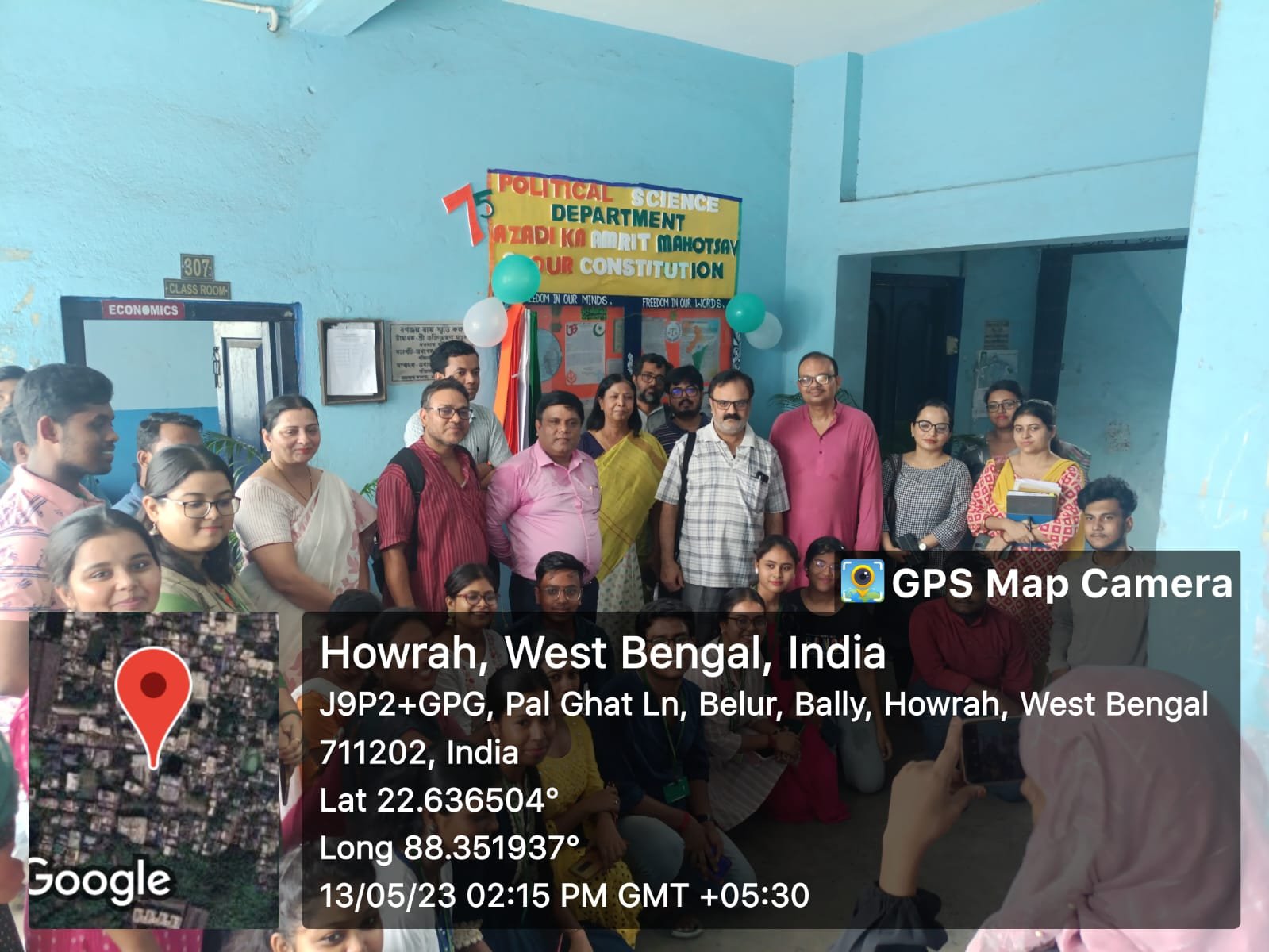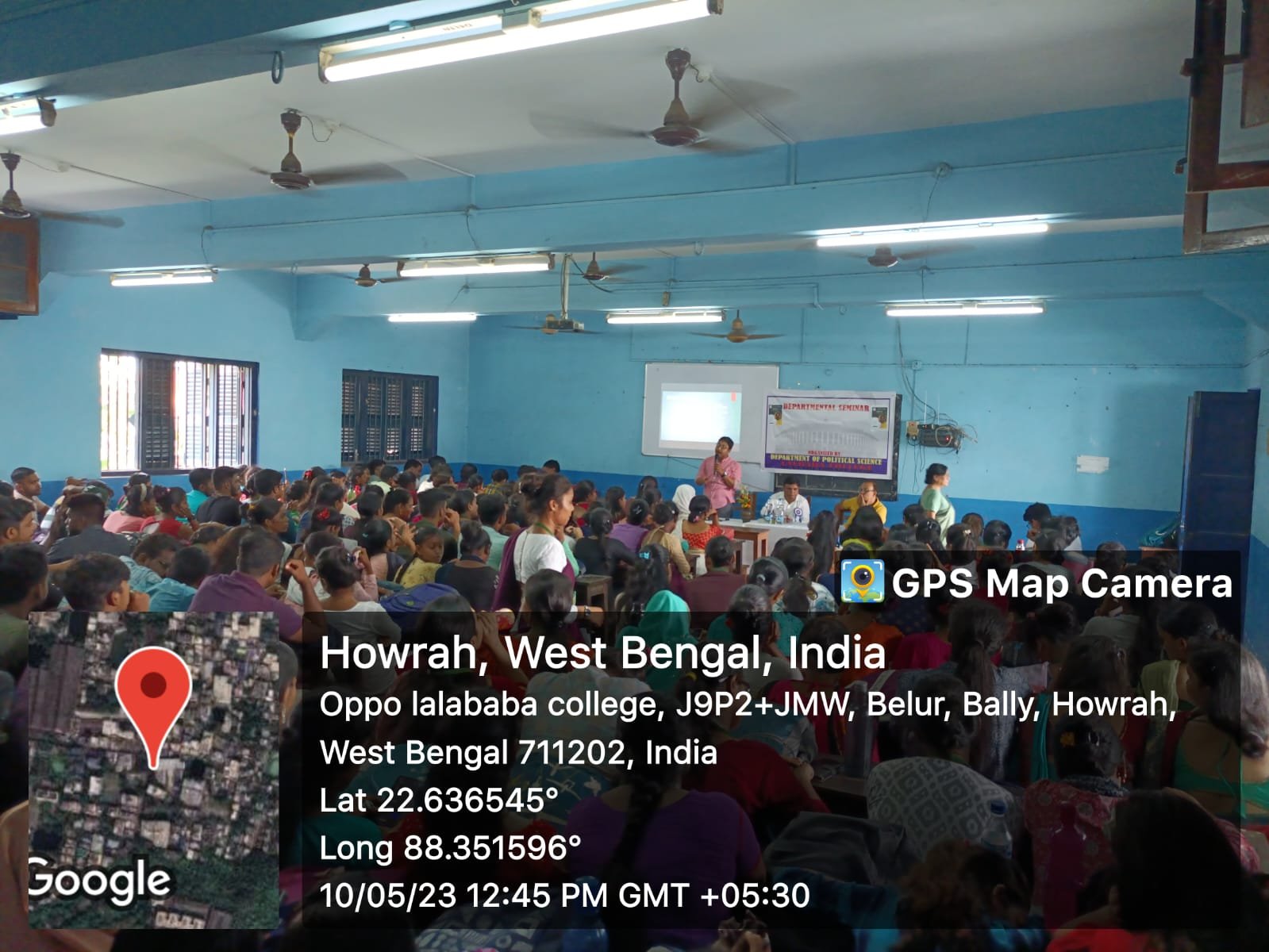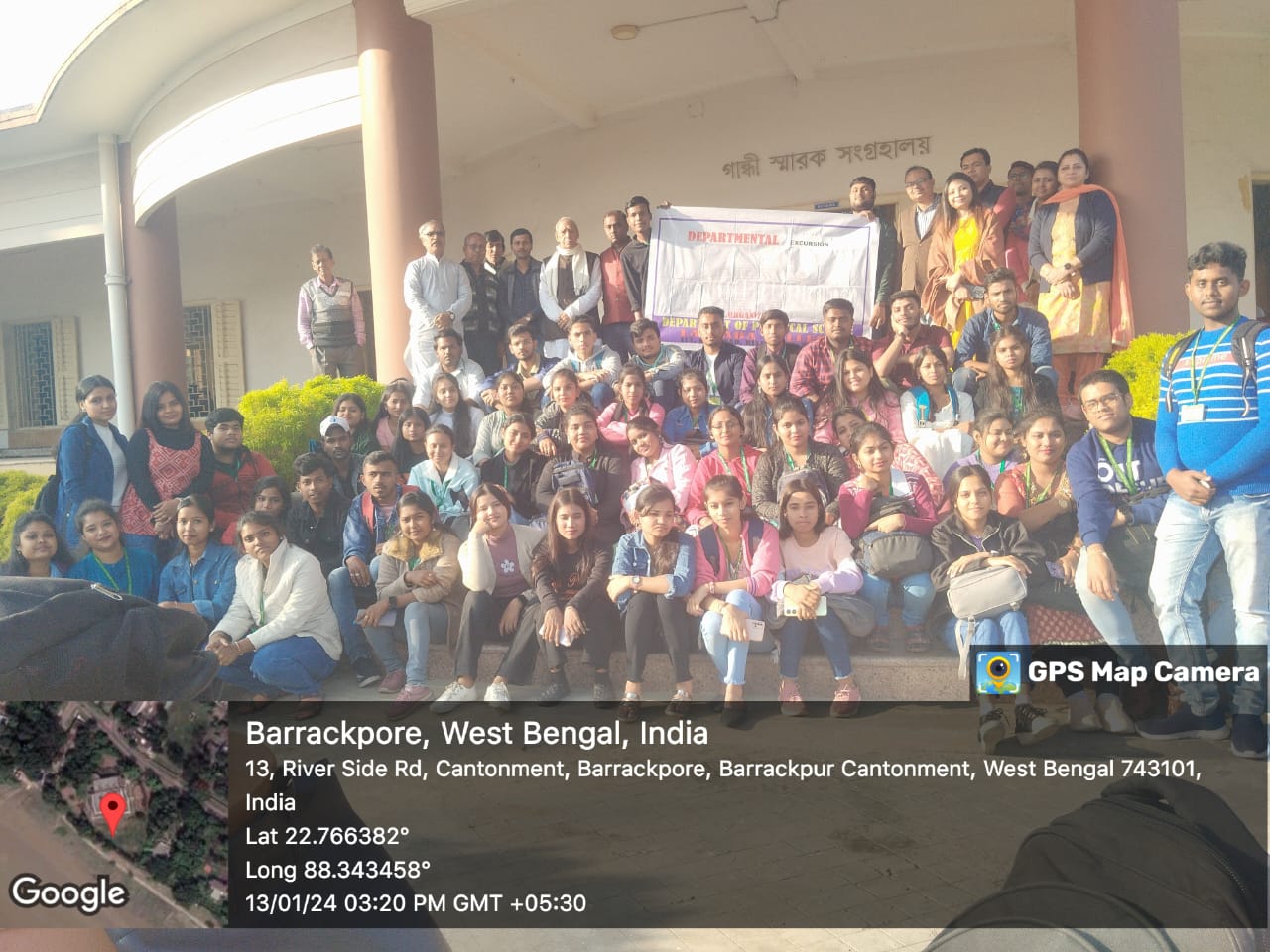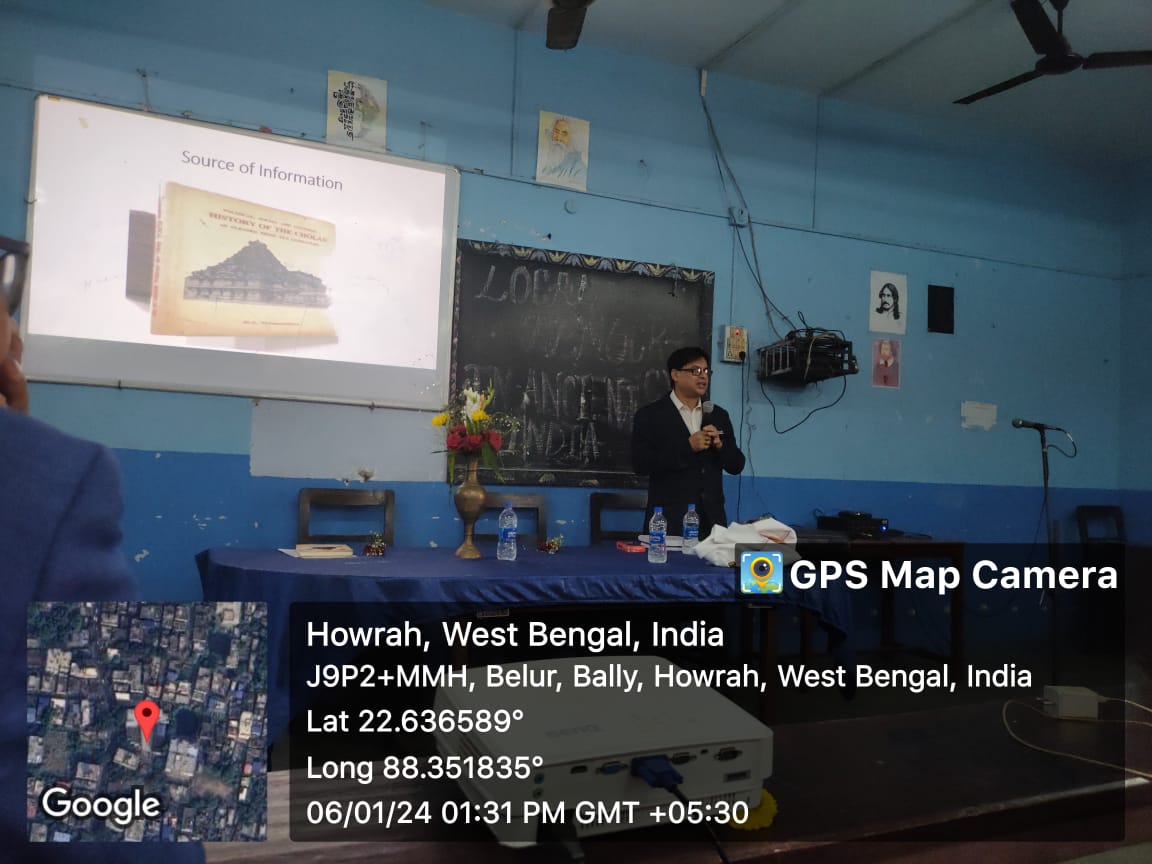Department of Political Science
About:The department of political science was established in the year 1964. The department has consistently maintained a degree of academic excellence as reflected in University results. Some of our students ranked in the University merit list while quite a few have obtained first-class. The success rate in general, has been almost hundred percent. The department focuses on quality interaction enabling the students to interact more freely with the faculty.
Special
Lectures are periodically arranged by the department to enlighten the students
on various aspects of the course by renowned academicians from different
universities.Student seminars, projects, debates are encouraged to enhance the
confidence of the students and to have a greater grasp over the subject matter
by widening their vision.
Faculty Profile:
| Dr. Gautam Majumdar, M.A., Ph.D. | Associate Professor, In-charge of the Department | Specialization: Public Administration and International Relations |
| Smt. Nidhi Chowdhary, M.A., M.Phil. | Assistant Professor | Specialization: International Relations and Research Methodology |
| Sri Debasis Ghosh, M.A., B.Ed. | Assistant Professor | Specialization: Public Administration and Political Thought |
| Smt. Sumita Bharati, M.A. | SACT | Specialization: Political Sociology and Political Theory |
Achievements:
In the year 2017-18, our students participated in Youth Parliament Quiz Competition and achieved Runners Up position at District Level.
In the year 2018-19, one of our student scored first class in the University Examination.
In the year 2019-20, 11 out of 16 students of 2nd Semester scored first class marks in the University Examination.
In
the year 2019-20, four students bagged prizes in UJJIBAN (College level
Competition) in different events.
SWOT
Analysis:
STRENGTHS:
1. Students have very positive frame of mind. Students of this department regularly participates in some cultural programs and other extension activities to highlight the value education and social responsibility.
2. Interaction between students and faculty members is friendly and supports the career-building process of learners. A high degree of co-operation and co-ordination among faculty members leads to smooth functioning of the department.
3. Introduction of tutorials has facilitated regular interaction between students and faculty members. Proactive learning processes enhance and support the career building process of learners. The schedules and deadlines aim to bring the best out of the students in the Evaluation Process– in terms of the enhancement of arguments, tests, term papers, analyses and presentation skills.
4. Use of various methodological approaches and different pedagogic tools from lectures to discussion, power point presentations, and other interactive methods are also used as an important tool of education. Faculty members are always accessible to the students for advocacy, mentoring. Faculty members are sincere, punctual, capable, dedicated, cooperative and innovative, and there is good camaraderie.
5. Some of the important teaching methods adopted by the faculty includes: • Book Reviews • Home assignments • Oral Presentations • Tests • Class Debates • Interactive Classroom discussions • Enhancing Critical thinking skills through Poster Creation • Use of Power Points • Project and Report Writing
WEAKNESSES:
1. Limited exposure is provided to outside world and limited programs of institutional visits owing to fund issues is a major weakness.
2. There has been no formal mechanism of feedback, as a system. There should be a quarterly feedback mechanism as the existing informal mechanism has its own limitations and is not adequate.
3. In terms of infrastructural facilities, we need to address the problem of departmental cubicle for teachers, lack of Departmental Library, inadequate infrastructure for e-learning, lack of congenial space with number of classrooms, classroom size and student-faculty ratio also needs attention.
4. The linguistic skills of students in both oral as well as written formats are very poor, comprehensive text book readings by students are in most cases absent due to diversity of language in terms of Bengali, Hindi and Urdu medium.
OPPORTUNITIES
1. In response to the emerging challenges, a well-planned exposure to national and international issues has been provided to students by their teachers. Exposure to students regarding Parliamentary proceedings are also facilitated by organizing Mock Parliament Debates.
2. Furthermore, sensitization on issues of human rights, ethics education, capacity building, skill enhancement for the students are to be encouraged.
3. Despite not having a formal alumni association, department still maintains a close contact with passed out students to keep a track of students’ progression.
4. The students are regularly encouraged to grab the opportunities of all kinds.
CHALLENGES
1. Limited space for storing books of the department, non-availability of e-books in Bengali version, and inadequate office space for faculty members of the Political Science Department in terms of basic facilities.
2. The linguistic diversity of the students poses a great challenge while infusing e-learning methods.
3. Most of the students are first generation learners making them adept new learning skills requires several mentoring sessions.
4. The students mostly come from rural or semi-urban background and many female students are married off at an early age thereby resulting in an increase in drop outs.
5.
The students are unable to afford online classes on
regular basis in the pandemic situation due to low family income status.
Best
Practices:
The department is actively engaged in mentoring students and giving them experiential learning. The advanced learners of the department come forward to mentor the slow and new learners by doing online sessions and informal meets. the students are regularly encouraged for participating in different seminars, essay Competition and social programmes to develop their scholarly activities. An Address to Students of the First Semester (Orientation Programme) at the beginning of the academic session is conducted with an objective to instruct the students about the course from time to time. The department believes that teachers and students need to communicate and interact almost on a continuous basis, if they have to build up an ideal institution together.
| Sl No | Title | Annual Report View |
|---|
| Sl No | Title | Notice View |
|---|
| Sl No | Name | Phone No | Email Id | Progress |
|---|

